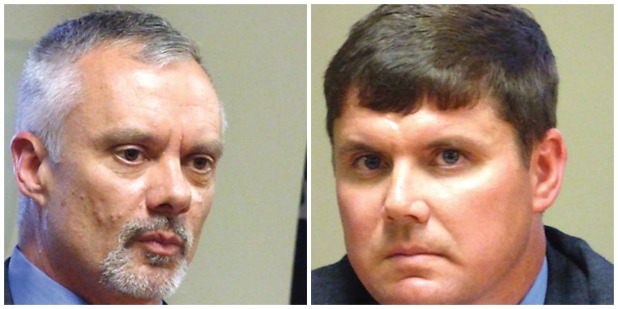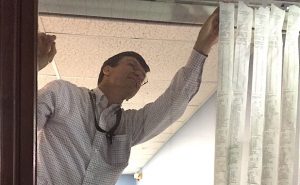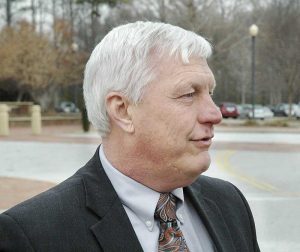Assistant DA Coker, an Upson resident, favors splitting Fayette from other 3 counties; Hayes, a Fayette resident, said costs of 2 new circuits would be prohibitive
There has been some campaign talk recently about the number of cases tried by district attorney candidates Rudjard Hayes and Ben Coker. Both candidates were asked about that issue and about the potential move to split the Griffin Judicial Circuit so that Pike, Upson and Spalding counties might form their own circuit, leaving Fayette on its own.
The notion of carving up the single circuit into two has surfaced in Spalding, Pike and Upson counties, perhaps more so than in Fayette.The result would be two sets of judges, district attorneys and associated administrative staff instead of one. Fayette has almost as many people in it (106,567 in the 2010 Census) as the other three counties combined (109,100 in the 2010 Census).
Coker favors such a split; Hayes does not.
Coker said he had heard rumors of such a move for years, adding that, “It’s always been discussed as whispers or comments.”
Coker, a resident of Upson, the southernmost county in the circuit, said there is more talk about the split now and that the idea had been brought up in a candidates’ forum in Griffin. Coker said he did not know why there is more talk now about a split.
Asked if he supports a split, Coker said he would, though his reason is due to the numbers involved. He said the case load for civil cases is higher in Fayette County while the load for criminal cases is higher in Spalding.
That said, Coker noted that a decision to split the circuit is up to the counties and county commissions and requires state legislation to accomplish.
Hayes, a resident of Fayette, said he understands that the counties outside Fayette have felt as if they are not properly represented by the district attorney’s office.
“I heard that during my time in the (Griffin circuit) and I understand the desire and frustration,” he said. “I would handle it as all for one and one for all with no (favoritism), so I’m not in favor of splitting. But if I’m district attorney and all four counties want to split I’m not going to stand in the way.”
Like Coker, Hayes said such a move would be up to the counties and the legislature.
Touching on an affiliated issue, Hayes said the cost of splitting the circuit would be “astronomical.”
Both Hayes and Coker were asked to comment on the number of cases each tried as assistant district attorney and their type of involvement in those cases.
Both candidates explained that the cases include a variety of variables such as participating as the lead prosecutor, working with and/or supervising other prosecutors, including interns allowed to try cases, as well as preliminary hearings, bond hearings, grand jury presentments, bench trials, jury trials and plea agreements.
The candidates were asked to break down the numbers in terms of the actual cases they tried as lead prosecutor, the number of cases in which they assisted other prosecutors and the number of cases in which a plea agreement was reached.
Coker, who served as an assistant district attorney for 11 years, said he functioned as lead prosecutor in approximately 32-35 cases and assisted other attorneys in approximately 100-200 cases.
As for cases in which a plea agreement was reached, both Coker and Hayes said those represent the vast majority of cases.
Coker said the number of proceedings where a plea agreement was reached numbered in the thousands, with an estimated 90 percent of cases reaching a plea.
Hayes in responding to the questions said in 11 years in the Griffin and Coweta circuits he served as lead prosecutor in approximately 160 cases, including throughout the Coweta Judicial Circuit from 1996-2004 where upwards of two dozen cases per year sometimes occurred.
Hayes said he assisted other attorneys in approximately 100-120 cases.
As for cases where plea agreement were reached Hayes, like Coker, said those represented 90-92 percent of all cases and numbered in the thousands.
Touching on an affiliated issue, Hayes said the cost of splitting the circuit would be “astronomical.”
Finally, District Attorney and Superior Court Judge-elect Scott Ballard was asked if he supported one candidate over the other.
“I haven’t endorsed anyone. I can’t publicly endorse anyone,” said Ballard, noting the prohibition of such a move given the Judicial Canon of Ethics.













Leave a Comment
You must be logged in to post a comment.